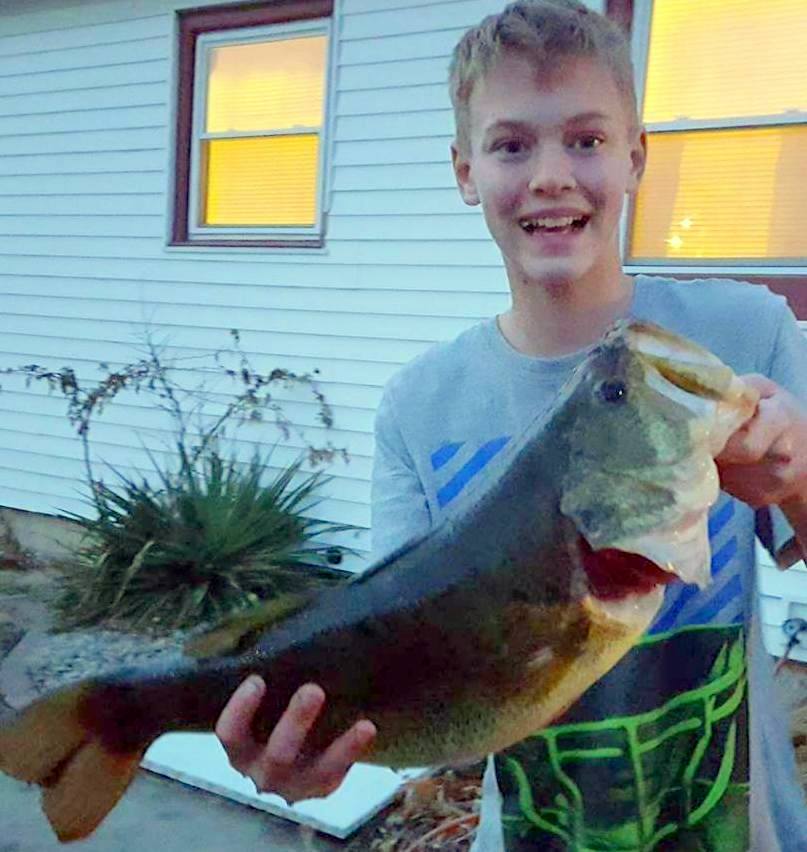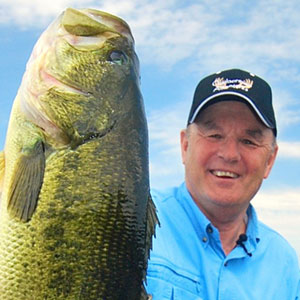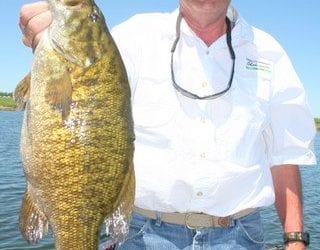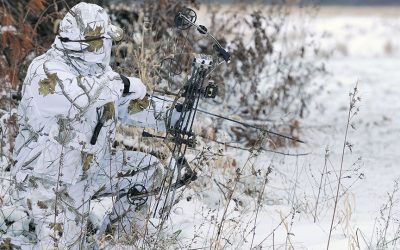Some anglers seem to develop tunnel vision this time of the year, when some anglers go after just one species of fish and head for the larger bodies of water.
When an angler develops tunnel vision, they are missing some of the finest early season fishing.
Many anglers are hooking onto their boat and running great distances going by some of the best fishing available found, right in their own backyard, those smaller waters that hold big bass.
Throughout the upper Midwest and especially and in our area there are excellent populations of bass, both small and largemouth and this is an excellent time to take good numbers of both species.
You will find small and largemouth bass throughout the Missouri River system on upstream in Lake Francis Case, Sharpe and Lake Oahe, in ponds, farm and stock dams, lakes and reservoirs with most having catcheable populations of largemouth bass.
After the rigors of the spawn, bass are located in the deeper water, where they are resting up and beginning to feed and as the water temperatures begin to warm, they will become more active.
As water temperature move into the low 70’s, bass will start to feed aggressively.
Look for bass this time of the year spending much of the day in the deeper water, moving into the shallows early in the day and later in the afternoon looking for an easy meal.
In the Missouri River and areas with current, bass will be hanging out throughout the day tucked in behind some sort of cover and in areas with warmer water such as backwaters and in open pockets in the rushers and in deeper bays.
Anything that cuts or slows down the current, those slack water pockets, are good locations for bass to find shade and a place to ambush prey.
Points, rock piles pockets in the weeds and down timber, all cut the current and make excellent locations to look for bass in the river.
Both large and smallmouth bass take spinnerbaits, crankbaits, worm rigs and jigs, but when fishing for smallmouth, it is a good idea to downsize your baits as the larger baits used for largemouth may over power a smallmouth.
In the lakes, ponds and stock dams look for largemouth bass in ambush areas that are shaded those areas with pockets just inside the weed line, under boat docks, next to down timber or adjacent to brush piles.
If it sticks out of the water or lies along the shoreline, chances are that sometime during the day, a bass will be near it.

Dayton Kadavy, Hartington, Neb. with a big bass, a 5.3 pounder he took from a small pond using a spinnerbait.
If there is no apparent structure along the shoreline, look for bass to be located in the deeper water where they can move up quickly to take advantage of baitfish and other aquatic critters washed into it.
Because bass have a tremendous appetite, you can bet, if they can get their mouth around it, they will eat it.
Live bait such as crawlers, minnows, waterdogs and salamanders will catch fish; including bass.
Sliding (bullet) sinkers above a large hook tipped with any of these live baits will take bass in any body of water.
Many bass anglers choose to fish only artificial baits, matching their baits to the time of the season they are fishing.
In colder water period or when a front has moved through, slow down your presentation, using a jig and pig or plastic baits such as Power Bait, Gulp worms.
These plastic baits when Texas or Carolina rig are an excellent choice when bass have lockjaw and will not take other baits.
By slowly working these baits through or adjacent to the structure, you will be able to entice a few of these slow moving bass to bite.
As the weather warms, bass become more active with the fishing for bass improving, try casting spinnerbaits, buzzbait or crankbaits during this time of the year as these baits account for many of the bass taken when the water warms.
To take the more active and aggressive bass, bounce your baits off the logs, rocks or alongside and under boat docks where the bass will be located near.
The big problem anglers’ face as the water warms, especially in the clear water lakes will be weeds.
To fish these areas, you will need to adjust your methods or spend much of your time snagged up or pulling weeds from your baits.
If you are fishing these weedy bodies of water, you will need to use some type of weedless bait or bait that will run through, over or under the weeds.
Since most of the weeds either lie just below the surface or have open pockets in them, there are several baits that will produce in these salad bowl areas.
In waters where the weeds are not covering the surface, top water baits worked slowly across the open water above the weeds works well.
Bring your bait slowly across the top, stopping occasionally giving the bass a good opportunity to look your bait over or to locate it through the weeds.
If you are fishing heavy weeds covering much of the surface, using a spinnerbait or buzzbait, which works well, start your retrieve quickly, as soon as your bait hits the water and by holding your rod high and retrieve your bait quickly, you should be able to work your bait over the weeds.
If you are using a buzzbait, you will need to keep it on the surface all the way across the weed bed. If there are larger open pockets, you can slow down the retrieve; keeping the bait on top, raise your rod tip to keep it from sinking. By slowing your bait down, bass following, the descending bait, may triggered a strike.
With a spinnerbait, once it is working along the top, keep it moving until you roll over open pockets that might hold fish. Then slow your retrieve, letting the spinner bait helicopter or slowly drop into the pocket, giving bass hiding in the pocket an opportunity to strike. Then, bring your rod tip up high, cranking aggressively bringing the bait to the top to get the blades to start spinning again.
Because you will be fishing in the weeds, in the wood and near boat docks, you are going to need some tough line like Berkley Big Game, a longer medium heavy or heavy rod topped off with a reel with a ratio allowing you to pick up a lot of line with each crank of the handle.
In weeds, the bass is going to hit hard and then head into the weeds, so it will not be a finesse type bite.
To win this battle with powerful bass, you are going to have to set the hook hard and muscle him onto the surface or he will break you off in the weeds and timber.
The switch from the post spawn to warm season fishing is a numbers game, where you throw your bait at as many snags, stick-ups and weedy spots you see and eventually rewarded with an aggressive strike and the hard fight of the bass.
This is the time of the year when bass fishing can get fast & furious, especially early in the day and late afternoon, do not develop tunnel vision and chases only one species.
Give early season bass fishing a try, you will be darn glad you did!





0 Comments